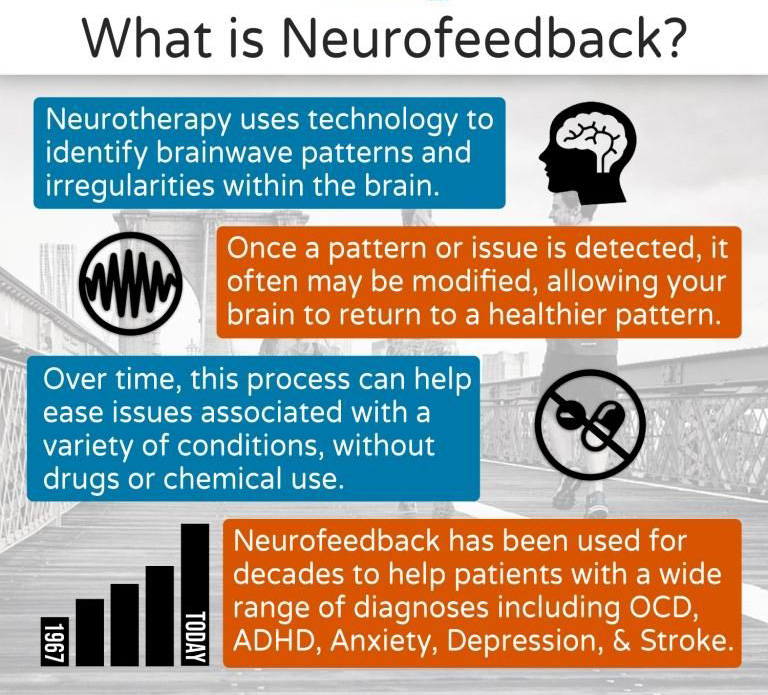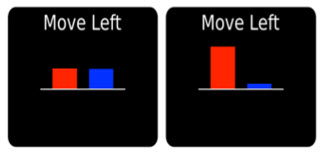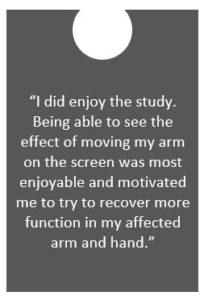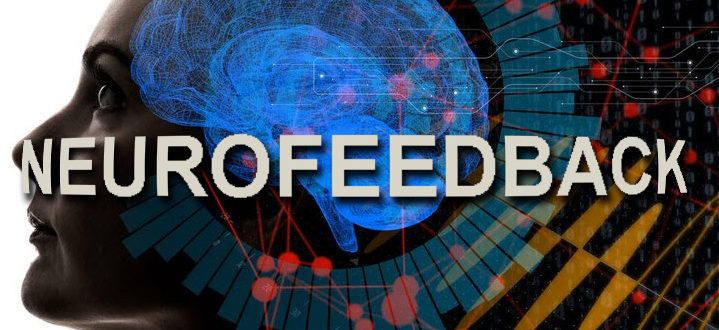 Neurofeedback is a brain scanning (MRI) technique that shows an individual a representation of their own brain activity while doing a task, so they can observe their brain activity and try to adapt it.
Neurofeedback is a brain scanning (MRI) technique that shows an individual a representation of their own brain activity while doing a task, so they can observe their brain activity and try to adapt it.
Over the past two years, a group of researchers at the Wellcome Centre for Integrative Neuroimaging at the University of Oxford have been conducting research into whether this technique can help improve recovery of movement after stroke.
In this particular study, stroke survivors are asked to use different movements and strategies to activate the part of their brain that controls their more-affected hand/arm during an MRI scan. This is with the aim of teaching participants to engage particular parts of the brain – in order to increase the amount of movement they have in their more-affected hand/ arm.
 Feedback of brain activity as seen by the participants.
Feedback of brain activity as seen by the participants.
“Try to increase the height of the red bar while keeping the blue bar low”
Professor Heidi Johansen-Berg, Director of the Centre, lead for the study, has mentioned to ARNI that the Centre is about half way through this study, and that they are still looking for more volunteers to take part in the study.
So, any stroke survivors out there – do look at this!!
STROKE SURVIVORS ARE INVITED TO COME TO THE WELLCOME CENTRE FOR INTEGRATIVE NEUROIMAGING AT THE UNIVERSITY OF OXFORD
Here are some of the experiences of the participants who have taken part already.
 Upon interviewing those who have taken part already, participants’ responses have been overwhelmingly positive, specifying both the enjoyment and fulfilment involved with taking part as well as a benefit to their motor recovery.
Upon interviewing those who have taken part already, participants’ responses have been overwhelmingly positive, specifying both the enjoyment and fulfilment involved with taking part as well as a benefit to their motor recovery.
“You will certainly learn a lot from the experience and for me the study was transformational in further understanding the effects of my stroke and to learn how I could self-train further.”
“It is hard work, but is very worthwhile, not only for the research, but for self-awareness of the progress that can be maintained post stroke.”
Participants expressed that they felt others would benefit from taking part in the same way that they did.
Thomas Smejka, a researcher on this study, has noted that ‘…as researchers it is very important to us that our participants feel comfortable while taking part and we are incredibly grateful for the contribution they have made to our research’.
If you have any questions about this research, or would like more information about the study, please contact the researchers directly:
thomas.smejka@ndcn.ox.ac.uk or melanie.fleming@ndcn.ox.ac.uk
Or call one of the research team on 01865 611461 today.
It is the view of ARNI that being part of a clinical research study can ALWAYS push/point you towards new directions that you may not have ever thought about. You MUST take the opportunity to attend this world-class facility!




3 Comments
I have post stroke head pain caused by cerebellar stroke damage, some 18months. I also still have to dizzyness.
I would like to participate . Coronavirus is stopping me
I have central post stroke pain caused by stroke damage which I have had for six years and wondered whether this neuroimaging would help or whether there are any other suggested trials or remedies.